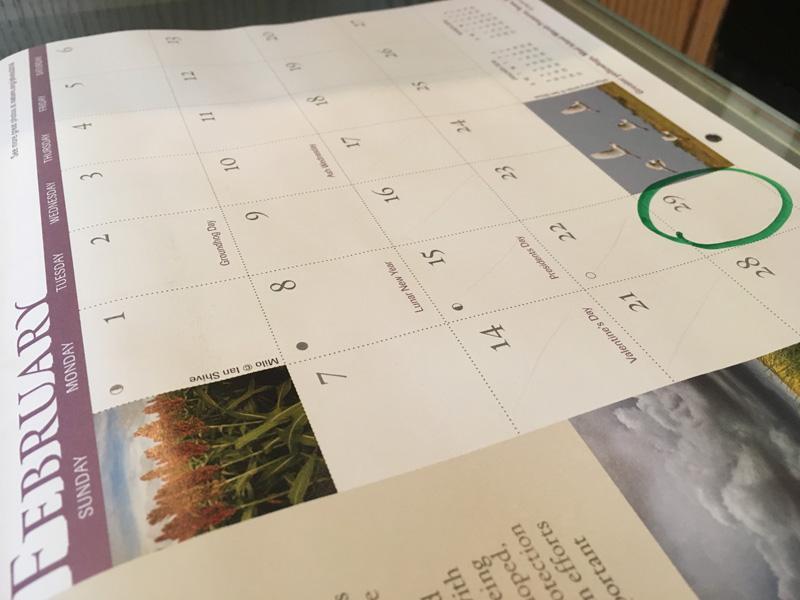Leap Years are Actually Necessary
Leap year is an extra day in the year making the normal 365 day year 366.
The common questions surrounding leap year: What happens if Feb. 29 is your birthday? Why do we need it?
The answer in a nutshell is that leap day is needed because, contrary to what you may have been taught in elementary school, during one full rotation around the sun, the earth spins 365.25 times. That extra .25 is what makes the extra day on the leap year necessary.
Julius Caesar was the one to add the leap day into the Julian calendar according to Why do we have leap year?, an article published by History.com. From then on every year that was divisible by four would have Feb. 29th and the rest would just have Feb. 28th lead right on to March 1st.
Feb. 29th acts are a day to add all the .25 turns the Earth makes in the three years before ensuring the rotations of the earth match up with the rotations around the sun, without offsetting the calendar and different days such as solstices and equinoxes which revolve around the sun position compared with the earth.
The one problem with this solution is that it’s not 365.25 rotations exactly; there are actually 365.2421 rotations. So according to the same article by History.com our calendar will require some fixing in the distant future to remain functional.
Okay, that’s all very interesting, but what if you are born on the extra day? Well your chances of that according to Leap Year Explained are one in 1,500 of being a leap day baby. However, people born on leap days typically don’t just celebrate their birthday’s every four years. According to the most US state laws, events such as becoming a legal adult at age 18 or being able to consume alcohol legally at 21 do not apply until after midnight on Feb. 28, making March a leap baby’s techinical birthday.
Currently there are around four million leap day babies worldwide according Leap Year Explained. Each one chooses which day to celebrate and some even celebrate both.






















































